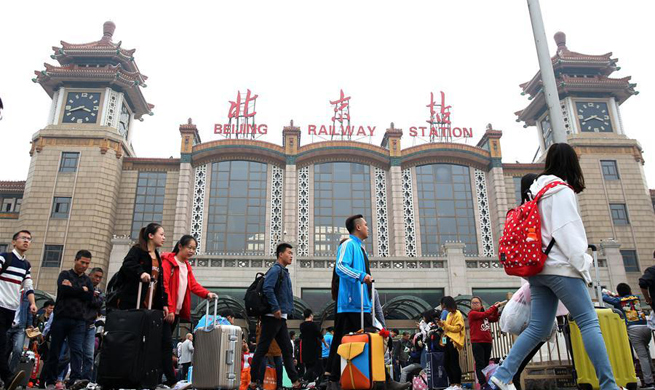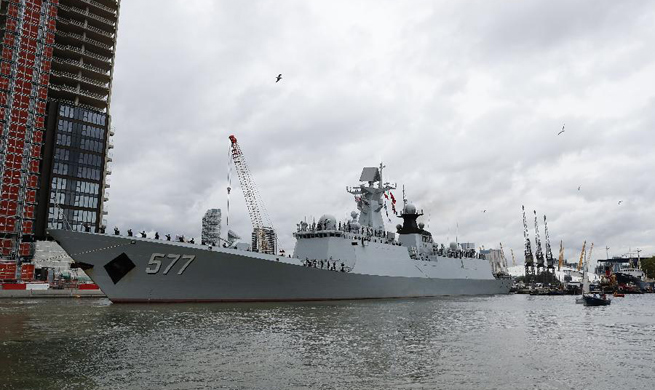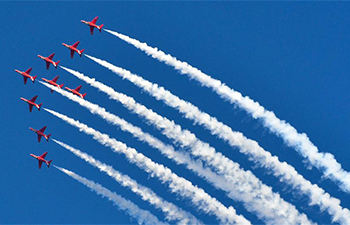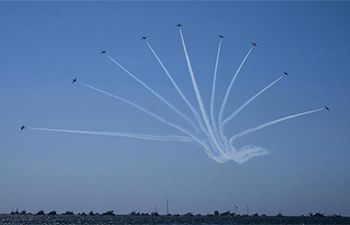by Christopher Guly
OTTAWA, Oct. 7 (Xinhua) -- With the fourth round of talks on revising the North American Free Trade Agreement (NAFTA) set to begin next week in the United States, a cross-border dispute between American aerospace giant Boeing and its Canadian rival Bombardier further intensified.
On Friday, the U.S. Commerce Department announced that it would impose an 80-percent preliminary anti-dumping duty against importers of Bombardier's C Series 100-to-150-seat civilian aircraft following a complaint by Boeing that Bombardier allegedly priced its aircraft "millions below production cost in an illegal effort to grab market share in the U.S. single-aisle airplane market." ( The Canadian company announced last year it sold 75 C Series jets, with an option for 50 more, to U.S.-based Delta Air Lines at a price of 5.6 billion U.S. dollars, but has yet to deliver the aircraft.
U.S. Commerce Secretary Wilbur Ross said in a statement on Friday that "the United States is committed to free, fair and reciprocal trade with Canada, but this is not our idea of a properly functioning trading relationship."
The new duties follows an announcement last week by the Commerce Department that Bombardier's C Series would also face a 220-percent preliminary countervailing tariff based on another Boeing complaint that Bombardier received unfair Canadian government subsidies.
Bombardier called Washington's latest decision "an egregious overreach and misapplication" of U.S. trade laws to prevent its C Series aircraft from entering the U.S. market, and accused Boeing of also selling planes below production cost "for years."
"This hypocrisy is appalling, and it should be deeply troubling to any importer of large, complex, and highly engineered products," Bombardier said in a statement on Friday.
Canadian Foreign Affairs Minister Chrystia Freeland was also sharp in her criticism of the new duty against Montreal-based Bombardier.
In a statement on Friday, she said the Canadian government was "extremely disappointed by and in complete disagreement with" the new tariff that "put[s] at risk the almost 23,000 U.S. jobs that depends on Bombardier and its suppliers."
Freeland said that Chicago-based Boeing "is manipulating the U.S. trade remedy system" to block Bombardier's C Series from being sold in the U.S. "despite Boeing's admission that it does not compete with the C Series."
The U.S. Commerce Department will release its final decision on the anti-dumping duty in December. If the preliminary determination stands, the U.S. International Trade Commission will proceed with its countervailing investigation against Bombardier and release its decision in February.
But whether or not Bombardier's jets will face import duties of 300 percent, Boeing may have lost a major sale in Canada.
Last month, the U.S. government approved the sale of 18 Boeing Super Hornet jets to the Canadian military, at a cost of 6.4 billion Canadian dollars (about 5.1 billion U.S. dollars), to replace Canada's aging fleet of CF-18 Hornets from McDonnell Douglas, which merged with Boeing in 1997.
Canadian Prime Minister Justin Trudeau will be in Washington next week when the NAFTA negotiations resume. He is likely, as his International Trade Minister Francois-Philippe Champagne suggested last week, to send the "strong message" that "Boeing has not demonstrated to be a trusted partner" with Canada.
Champagne warned that "there will be consequences" -- essentially repeating Trudeau's threat to cancel the planned purchase of the Super Hornets.

















